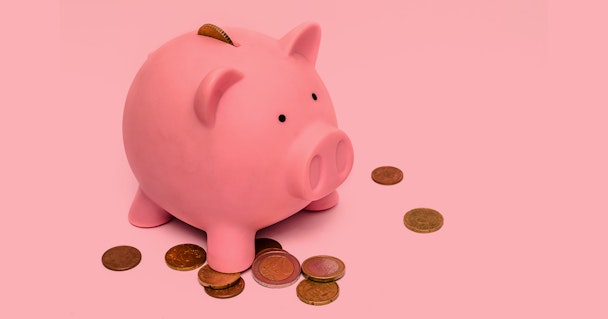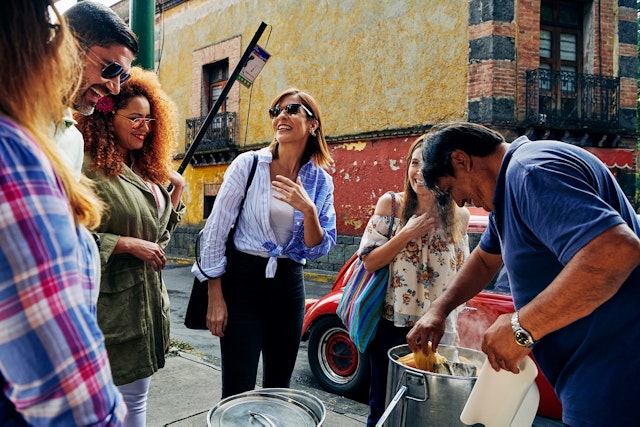
Advertisement

Can marketers learn from the companies that broke through in the last recession with value offerings?
The last recession saw a crop of challenger brands disrupt industries and dominate their rivals – all by offering consumers a way to save cash. Now the next recession has arrived, will we see the same again?
Airbnb was founded in August 2008. Groupon was incorporated in November 2008. WhatsApp was founded two months later, and Uber was founded two months after that. It takes guts to launch a business during a recession. But what united these startups wasn’t the self-belief of their founders, or even their use of tech to provide products and services. It was the fact that they promised to save their customers money.
WhatsApp offered a way to cut your phone bill down, Airbnb promised cheaper holidays, Uber cheaper travel and Groupon cheaper everything. It’s no coincidence – when times are hard, consumers look for ways to tighten their budgets.
The current recession, according to the International Monetary Fund, will be far worse than the 2007-2009 Great Recession. The IMF recently said Asia Pacific is suffering its worst recession in living memory, and the UK is expected to stay in recession until at least next spring. The IMF has even gone so far as to claim the Great Lockdown may parallel the Great Depression. Big-name brands have already been bruised, with a recent survey from Brand Finance and the International Advertising Association estimating that $22 trillion had been collectively wiped off brand valuations.
So, with consumers checking their spending across the world, will people again turn to digital disruptors that promise to help them save? And what can marketers learn from the companies that spun a value-based offering into decade-long market dominance?
When the last recession unfurled, Lucie Greene was working as a journalist in London. “I remember watching the stock market crash on TV and thinking, 'how is that going to affect me? Then, suddenly no publication was commissioning my work.” Greene left the industry and began trend forecasting, later working for J Walter Thompson as the worldwide director of its futures think tank, JWT Intelligence; these days, she runs her own business, Light Years, consulting with brands.
She notes the digital businesses that came out of the last recession took advantage of other trends begun in that period – gig working, co-working and the rise of the so-called ‘sharing economy’ – and offered adjacent services at a low price.
“We saw a lot of stuff that was predicated on cheap labour and making luxury accessible,” she says. Greene also includes the wave of DTC brands such as Harry’s (founded 2012) and Dollar Shave Club (established in 2011) within this umbrella. “Categories were redefined with this millennial tone of voice that said: ‘We know you’re not dumb, you don’t need Gillette to have a good razor. We’ll bring you a razor for X amount.’ These anti-brand brands talked to savvy consumers and offered to bring them a great product, but without the bells and whistles.”
Greene says that consumer behaviours had changed in the years between the Dot Com Bubble and the Great Recession, normalising doing business online. “Paying for stuff on the internet became established as a consumer behaviour. I think post-2008 to now, consumers have since become happy with on-demand services. There’s more trust.”

Consumer norms cemented in the last decade, and during the pandemic, will influence the businesses that dominate the next generation, she suggests.
Ben Grinspan, director of cultural strategy at cultural consultancy Sparks & Honey, also remembers where he was when the proverbial last hit the fan. “I remember 2008 like it was yesterday. One day my political science teacher came in to class and said: ‘We’re not doing the syllabus, instead I’m going to explain to you what just happened to Lehman Brothers.’ I remember leaving the class thinking: I’m fucked!”
Grinspan points out many of the digital companies that broke out of the recession years were aided by the flood of venture capital available to California and New York founders.
“In 2009 and 2010, we saw a lot of money flowing towards companies. There was this attitude of ‘let’s hack the system’, right? Airbnb is hacking the system. Groupon is hacking the system. And lots of money flows in there because they found ways to do something expensive and complicated for cheap.”
He suggests the experience of that recession significantly impacted consumer buying patterns in the years that followed: “I think that deeply coloured how people now approach things and the way they find value in brands. Is this brand a safe harbour? Is the service going to be there for me regardless of what happens in Washington or New York, or, ultimately a wet market in Wuhan?”
Max Morielli, president of Accenture Interactive in Europe, argues that value need not always mean saving cash.
“We need to look at what value means to today’s consumer. Reflect on what’s happened to the world over the past year; the pandemic created a dramatic and explosive uptake of digital commerce and services,” he says. “Businesses that were innovating in this area, such as Babylon Health – in providing virtual doctor’s appointments – have been validated widely. That’s not going to go away.”
Morielli, Greene and Grinspan each individually suggested that the private healthcare sector, and the broader wellness industry, were categories ripe for this kind of change.
According to Greene, “there will be a consolidation of what wellness means. Simple, back to basics. It’s about core health attributes, what actually works.”
Grinspan agrees, suggesting that ageing populations in the western world as prime for a decentralised private healthcare boom (“Baby Boomers are only getting older.”) He says: “We have enormous access to health data, from your steps to your blood sugar. If I had to guess which areas were going to grow... the heath and wellness sectors are really well positioned to see really explosive growth, beyond your phone telling you how much you’ve walked.
“The question is: how do you provide people with a simplified version of the thing they really care about? Right now that’s your health.”
Another area blown open by the pandemic, Greene says, is higher education. “If you think of higher education and prestigious universities as a single brand, that brand has been really damaged in this moment,” she says. “I think you’ll see virtual education, and more affordable and centralised education models such as micro certification and upskilling courses.”
Finally, she points to new financial products that have followed in the wake of challenger banks such as Starling and Revolut. “The pandemic has been an advert for money. Savings, flexibility, low fixed costs. There’s going to be an obsession with financial prudence,” says Greene, who suggests services such as investment app Robin Hood could be ones to watch.
It is worth noting however, that price-cutting and cheap convenience does come with a price. Arguably Airbnb’s great innovation wasn’t digital, it was finding a way to radically increase the available stock of hospitality accommodation – an innovation that has resulted in warped urban property markets around the world and made the brand a byword for gentrification.
Uber, which originally sold itself as a cheap, safe way to get around cities at night (and, as its founder Travis Kalanick once put it, be “baller in San Francisco”), has seen its brand tainted by serial accusations of sexual harassment within the company and criminal cases relating to its drivers, alongside allegations that its growth across the US was aided by unsavoury lobbying tactics. Groupon may have enabled consumers to access the finer thing in life at a discount, but the businesses it partnered with soon caught on to the fact that they weren’t getting much out of the deal, a factor that led to the company’s decline in the middle of the decade.
Morielli suggests both investors and customers will hold the next generation to higher standards of ethics and sustainability. “The major difference between now and 10 years ago is that people have steadily been growing more aware of ethical, environmental, political and societal considerations in what they buy or service they choose.
“Any investment should be strongly and clearly linked to an organisation’s purpose. Even those companies that emerged as disruptors a decade ago have been forced to look at how their innovation ties in to a greater good for society. Employees, consumers and shareholders will hold the next generation of businesses accountable from day one.”
Greene even proposes that ethical labour models could become a key differentiator for new businesses, with co-operatives and other ethical models favoured. “In lieu of governments doing anything, maybe we’ll see new business models that put that at their centre,” she adds.
The pandemic is not the credit crunch. Grinspan notes that it combines “an economic crisis with a personal safety crisis”. But marketers can still understand what’s coming next by considering what came before. As Grinspan says: “There will be another recession after this recession, and one after that, and one after that.”